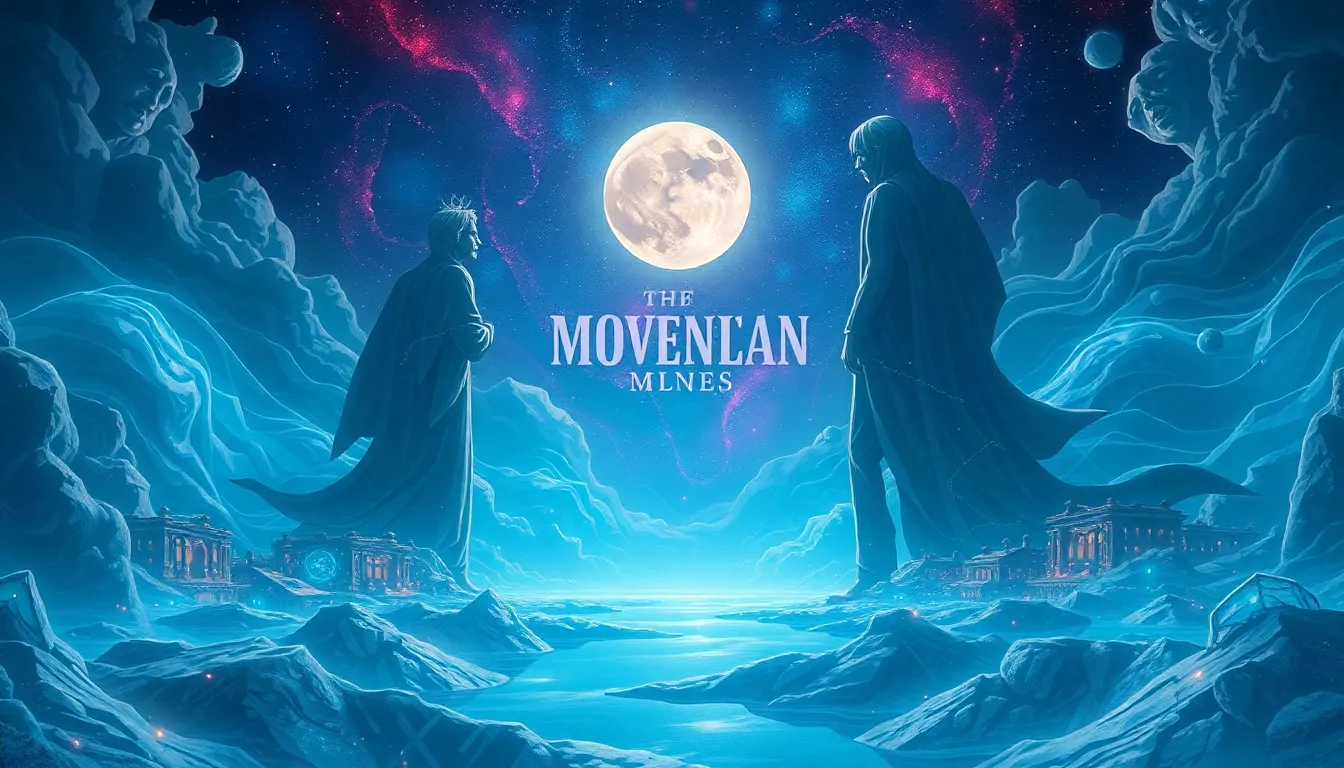The Myth of the Great Reunion: Morality in Connection
I. Introduction
The concept of “The Great Reunion” evokes a sense of nostalgia and hope, suggesting a time when humanity can come together in harmony. This idealized vision often centers around the notion of unity, love, and shared experiences. However, as we delve deeper into the fabric of human relationships, it becomes crucial to explore the underlying morality that dictates these connections.
Understanding morality in the context of human connection is essential, as it shapes how we interact, relate, and build communities. This article will unpack the myth of the Great Reunion and examine the moral frameworks that govern our connections. We will explore historical interpretations, the impact of media, and the challenges posed by technology, as well as propose strategies for fostering genuine relationships.
II. Defining the Great Reunion
The Great Reunion has been depicted in various forms throughout history and across cultures. It is often portrayed as a climactic coming together of individuals, celebrating shared values and collective humanity. From religious gatherings to family reunions, the idea encompasses a longing for connection that transcends time and space.
Societal narratives significantly shape our expectations of connection. These narratives, often idealized, set standards that can be unrealistic and unattainable. The allure of a utopian reunion can lead individuals to overlook the nuances and complexities of real-life relationships.
III. Morality: A Foundation for Human Connection
Morality, in both philosophical and cultural contexts, refers to the principles concerning the distinction between right and wrong or good and bad behavior. This foundation plays a pivotal role in shaping interpersonal relationships and community bonds.
The interplay between morality and relationships is intricate. For instance, trust, empathy, and respect are moral values that directly influence how we connect with others. A strong moral framework can foster deeper connections and a sense of belonging within communities.
IV. The Illusion of Idealized Connections
Media and literature often propagate idealized versions of human connection, creating unrealistic expectations. Romanticized portrayals of relationships can lead individuals to believe in a perfect reunion, disregarding the complexities inherent in human interactions.
Dissecting the ideal versus the reality of human relationships reveals the discrepancies between expectation and experience. For example, case studies of failed reunions, whether familial, romantic, or platonic, often highlight moral dilemmas such as betrayal, misunderstandings, and unmet expectations.
V. The Role of Empathy in Connection
Empathy stands as a cornerstone of morality and is essential for building and sustaining meaningful connections. It allows individuals to understand and share the feelings of others, fostering compassion and support.
However, in a divided society, challenges to empathy arise. Factors such as social media echo chambers, political polarization, and cultural differences can hinder empathetic understanding, making it difficult for individuals to connect on a deeper level.
VI. The Ethics of Connection in a Digital Age
The digital age has transformed how we form connections, presenting both opportunities and challenges. Online interactions offer the chance to connect with individuals worldwide, yet they often lack the depth of face-to-face communication.
Morality in social media and digital communication can be complex. The anonymity provided by online platforms can lead to both positive and negative behaviors, influencing our moral compass regarding connection. For instance, while online communities can provide support, they can also foster toxic environments.
VII. The Dark Side of Reunion Myths
While the idea of the Great Reunion can be uplifting, it can also conceal darker realities. Cases of manipulation and exploitation often occur in the name of connection. Individuals may exploit the desire for reunion for personal gain, leading to ethical dilemmas.
The psychology behind the desire for reconnection can reveal vulnerabilities. People may yearn for reconnection due to loneliness or a desire for acceptance, making them susceptible to unethical practices.
VIII. Reconstructing Morality for Genuine Connections
To foster authentic relationships, it is vital to reconstruct our understanding of morality in connection. Here are some strategies to consider:
- Embrace vulnerability: Being open and honest can deepen connections.
- Prioritize active listening: Understanding others’ perspectives fosters empathy.
- Engage in ethical practices: Upholding moral values in interactions strengthens community bonds.
Building communities that prioritize ethical interactions is essential for nurturing genuine connections. This involves creating environments where trust and respect are foundational values.
IX. The Future of Morality in Connection
Contemporary society is influenced by various trends affecting human connection. Issues such as globalization, cultural shifts, and technological advancements present both challenges and opportunities for moral engagement.
Potential challenges include the increasing isolation caused by digital interactions and the rise of superficial relationships. However, opportunities arise in the form of global connectivity and the chance to learn from diverse perspectives.
As we look to the future, the narrative of the Great Reunion may evolve. A more nuanced understanding of connection that incorporates moral frameworks could lead to a richer, more authentic sense of community.
X. Conclusion
In summary, exploring the myth of the Great Reunion reveals the complexities of human connection and the pivotal role of morality. By re-evaluating our understanding of connection, we can begin to foster more authentic and meaningful relationships.
As a call to action, readers are encouraged to engage in moral practices within their relationships, striving for empathy, vulnerability, and ethical interactions. Only through this commitment can we hope to bridge the divides and foster genuine connections in our increasingly complex world.



